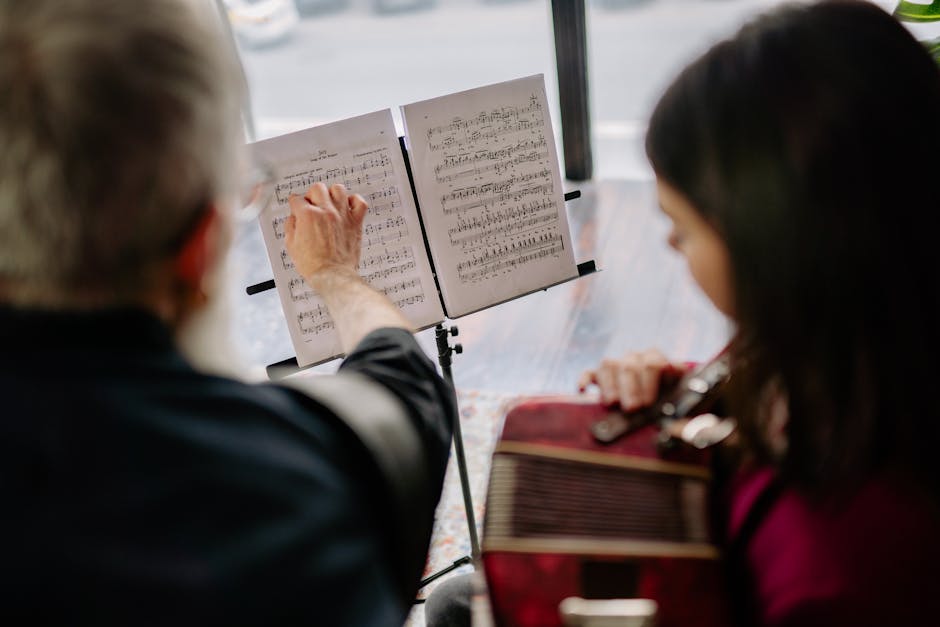Have you ever wondered if youth music programs can have a positive impact on academic achievement? Let’s explore the potential benefits of integrating music education into the academic curriculum.
Overview of Youth Music Programs
Youth music programs encompass a wide range of initiatives designed to provide young individuals with access to music education and artistic expression. These programs can include formal music classes, ensembles, choirs, and community music projects aimed at nurturing a love for music among youth. By engaging in music, students can explore their creativity, develop cognitive skills, and build a sense of teamwork and community.
Moreover, youth music programs offer a platform for young musicians to hone their talents, enhance their self-confidence, and discover new modes of self-expression. Whether through learning an instrument, singing in a choir, or composing music, these programs contribute to the holistic development of youth by fostering artistic growth and appreciation.
Through youth music programs, students are exposed to diverse musical genres and styles, allowing them to broaden their cultural awareness and develop a deeper understanding of music’s role in society. Such exposure not only enriches their musical capabilities but also cultivates empathy, creativity, and a passion for lifelong learning.
Overall, youth music programs serve as a gateway to a world of artistic exploration and personal growth. By nurturing a love for music and providing opportunities for skill development and performance, these programs play a crucial role in shaping well-rounded individuals with a deep appreciation for the arts.
Research on Music’s Impact on Academic Performance
Research indicates a strong correlation between music education and academic performance in students. Studies have shown that students who participate in youth music programs often demonstrate improved cognitive abilities, including enhanced memory, attention, and reasoning skills. The act of playing an instrument, reading music, or singing in a choir engages multiple areas of the brain, fostering cognitive development and neural connectivity.
Furthermore, music education has been linked to better performance in subjects such as mathematics, language arts, and even standardized tests. The discipline required to practice an instrument, the focus needed to interpret musical notation, and the collaborative nature of ensemble performances all contribute to the development of valuable skills that can translate to academic success.
Notably, youth music programs have been found to enhance students’ executive functions, such as problem-solving, decision-making, and cognitive flexibility. By engaging in musical activities that require attention to detail, coordination, and emotional expression, students develop a versatile skill set that can positively impact their academic achievements and future careers.
In essence, the findings from various studies underscore the profound impact of music on academic performance, highlighting the importance of incorporating music education into the academic curriculum to promote holistic development and academic success among students.
Benefits of Integrating Music Education in Schools
The integration of music education in schools offers a multitude of benefits that transcend traditional academic outcomes. Beyond enhanced cognitive abilities, music plays a pivotal role in developing emotional intelligence, social skills, and cultural awareness among students. Through youth music programs, students learn to collaborate, communicate effectively, and appreciate the diversity of musical traditions.
Moreover, music education fosters creativity, innovation, and critical thinking skills that are essential for navigating today’s complex world. By engaging in musical activities that encourage experimentation, improvisation, and self-expression, students cultivate a mindset of curiosity and exploration that extends beyond the classroom.
In addition, music has the power to inspire and motivate students, instilling a sense of discipline, perseverance, and self-confidence that are transferable to various aspects of their lives. Whether performing in a concert, composing a melody, or analyzing a musical piece, students develop a sense of pride in their accomplishments and a resilient attitude towards challenges.
Tips for Implementing Effective Youth Music Programs
When implementing youth music programs, it is essential to prioritize accessibility, inclusivity, and quality in program design. Ensuring that all students have equal opportunities to participate in music education, regardless of their background or abilities, is paramount to promoting diversity and equity in music learning.
Creating a supportive and nurturing environment for youth to explore and learn music is key to fostering their passion and commitment to musical endeavors. Encouraging creativity, collaboration, and individual expression can help students feel empowered and engaged in their musical journey.
Collaboration with music educators, community partners, and parents is essential for the success of youth music programs. By building strong relationships and fostering open communication, stakeholders can work together to create enriching music experiences that cater to the diverse needs and interests of students.
Embracing innovation and technology in music education can enhance the learning environment and provide students with unique opportunities for musical exploration. Incorporating digital tools, virtual platforms, and interactive resources can complement traditional teaching methods and engage students in immersive music experiences.
Harmonizing Success Through Youth Music Programs
In conclusion, youth music programs play a vital role in enhancing academic achievement and overall cognitive development among students. By fostering creativity, discipline, and critical thinking skills, music education can empower students to excel academically and beyond. Embracing the harmonious blend of music and academics is undoubtedly a key to unlocking a brighter future for our youth.








